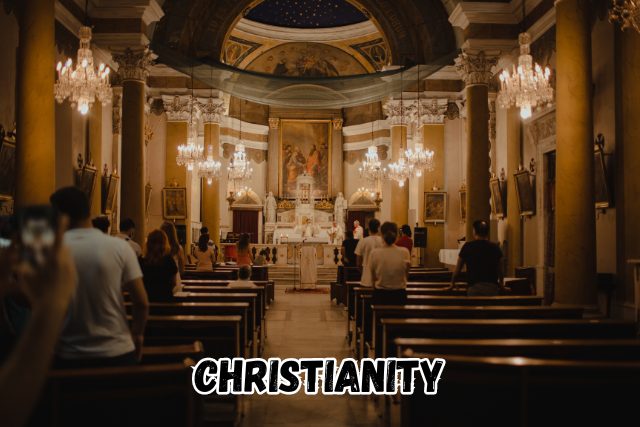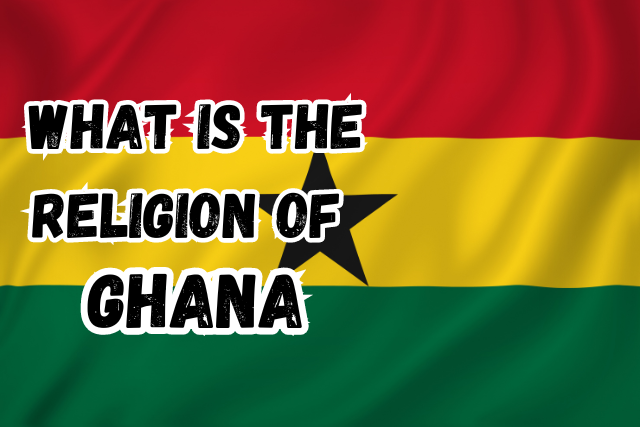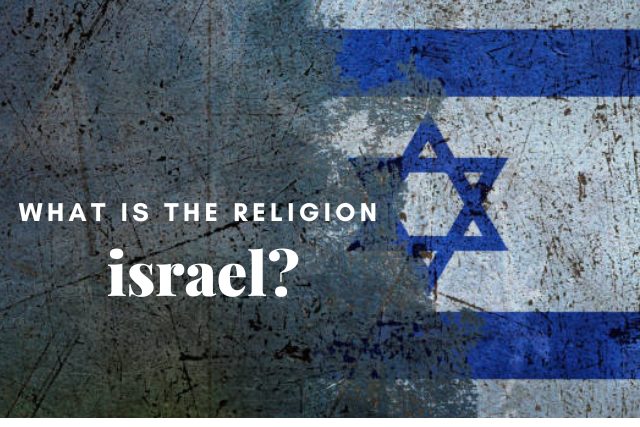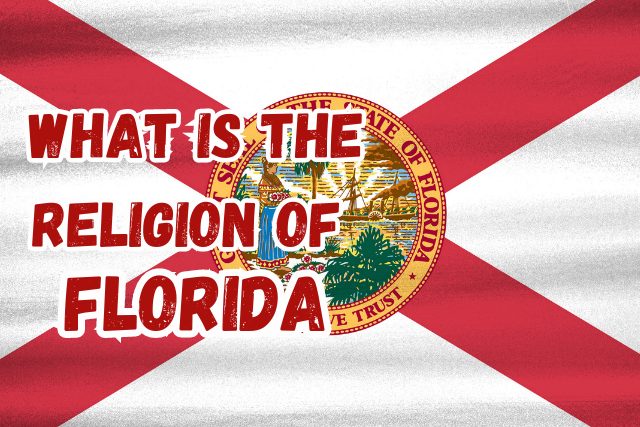What is the Religion of England | Faith Across Centuries

Step into the timeless realm of England, where the echoes of centuries past resonate in its diverse religious landscape. From venerable cathedrals to the dynamic present-day expressions of faith, England’s spiritual identity is a captivating journey through history.
As I explore the diverse religious landscape. England’s identity unfolds a harmonious blend of tradition and contemporary expressions. The sacred spaces, from historic churches to modern mosques, tell a tale of resilience and adaptation. Join us on this exploration through sacred spaces, traditions, and the enduring spirit that shapes the religious essence of England.
I’ll unravel the threads of faith that weave through England’s cultural fabric and the enduring spirit that shapes this historic nation. Ready for a fascinating exploration? Let’s delve into the religious heritage of England.
Christianity | What is the Religion of England

The predominant and historically significant religion in England is Christianity. The roots of Christianity in England trace back to the Roman period, with the establishment of early Christian communities. Over time, the influence of Christianity expanded, and it became deeply ingrained in the fabric of English society.
Church of England
The Church of England, also known as the Anglican Church, holds a central position in English Christianity. It is the established church, meaning it is the state church and has a special relationship with the British monarch. The Archbishop of Canterbury, as the head of the Church of England, plays a crucial role in the religious and ceremonial life of the nation.
Denominational Diversity
Within Christianity, England hosts a diverse array of denominations. These include Roman Catholicism, Methodist, Baptist, and various Protestant traditions. This denominational diversity contributes to a dynamic religious landscape.
Christian Traditions
Christianity permeates England’s cultural landscape, influencing traditions, holidays, and societal norms. Christian festivals such as Christmas and Easter hold significant cultural and religious importance.
Places of Worship
The architecture of churches and cathedrals across England stands as a testament to the historical and artistic significance of Christianity. These places of worship serve as both religious sanctuaries and cultural landmarks.
Islam

In recent decades, England has seen an increase in religious diversity due to immigration. Islam is now a significant minority religion, with a growing Muslim population. Mosques, Islamic centers, and cultural initiatives contribute to the visibility of Islam within English society.
In addition, Islam has a rich history in England, dating back to the 19th century with the arrival of Muslim sailors, traders, and students. The community has since grown significantly, contributing to the religious and cultural diversity of the nation.
Urban Mosques
Mosques, ranging from historical landmarks to modern architectural wonders, symbolize the presence and growth of Islam in England. Cities and towns boast vibrant Islamic centers that serve as places of worship, community gatherings, and cultural exchange.
Religious Practices and Traditions
The observance of the Five Pillars of Islam forms the foundation of religious practices for Muslims in England. These five pillars are Shahada (faith), Salah (prayer), Zakat (charity), Sawm (fasting during Ramadan), and Hajj (pilgrimage to Mecca)
Eid al-Fitr and Eid al-Adha are celebrated with joy and festivity, bringing together Muslim communities and fostering a sense of unity. These religious occasions also contribute to the multicultural richness of England.
Hinduism, Sikhism, and Buddhism

England is also home to communities practicing Hinduism, Sikhism, and Buddhism. Temples, gurdwaras, and Buddhist centers serve as places of worship and community gathering.
Hindu Community
England hosts a vibrant Hindu community with temples and cultural centers. These temples serve as focal points for worship, festivals, and community events. In addition, these places contribute to the preservation and sharing of Hindu traditions.
Hindu festivals, including Diwali and Holi, bring communities together. It fosters cultural enrichment and provides opportunities for sharing traditions with the broader English population.
Sikh Community
The Sikh community in England gathers at Gurdwaras for prayer, community service, and cultural events. The principles of equality and selfless service (seva) are integral to Sikh practices, contributing to community well-being.
Sikhs in England actively engage in maintaining their cultural identity. They engage through events, celebrations, and educational initiatives, ensuring the preservation of Sikh traditions.
Buddhist Community
Buddhists in England have established meditation centers and temples. They provide spaces for spiritual practices and community gatherings. These places contribute to the promotion of mindfulness and Buddhist teachings.
Buddhist communities actively participate in cultural exchange. Offering insights into Buddhist philosophy, meditation practices, and the promotion of peace and compassion.
Judaism

Judaism has a longstanding presence in England, dating back to medieval times. Synagogues, as places of worship, reflection, and community, stand as symbols of the enduring Jewish heritage.
England is home to vibrant Jewish communities, particularly in urban centers. They contribute to the cultural and religious diversity of the nation.
Cultural Contribution
The celebration of Jewish festivals and traditions enriches the cultural tapestry of England. Festivals such as Hanukkah, Passover, and Rosh Hashanah.
Synagogues in England often feature unique architectural designs, reflecting the rich history and traditions of Judaism. These buildings serve as both places of worship and symbols of the Jewish community’s cultural identity.
Cultural Understanding
Despite the historical presence of Judaism, challenges related to cultural understanding and awareness may persist. Ongoing efforts to promote dialogue and share Jewish traditions contribute to fostering understanding among England’s diverse population.
Religious Freedom
England upholds religious freedom, and individuals have the right to practice their faith without discrimination. The legal framework ensures that various religious communities can coexist, contributing to a pluralistic and inclusive society.
Its commitment to religious freedom is deeply embedded in its legal and constitutional frameworks. Individuals are afforded the right to practice their religion without fear of discrimination or persecution. The principle of the separation of church and state ensures that religious institutions do not wield undue influence in governmental affairs.
In addition. England’s legal framework includes anti-discrimination laws that safeguard individuals from being denied rights or opportunities based on their religious beliefs. These legal protections reinforce the nation’s commitment to creating an inclusive and equitable society.
Bottom Line
The religious landscape of England is multifaceted. It encompasses a rich tapestry of Christian denominations, minority religions, and a growing secular trend. This diversity reflects the evolving nature of English society, where different religious traditions coexist.
The Church of England holds a significant historical and cultural influence. Moreover, the nation embraces a variety of religious beliefs. These include Christianity, Islam, Hinduism, Sikhism, Buddhism, and Judaism, as well as a growing secular and atheist community. The religious landscape reflects a commitment to religious freedom, interfaith collaboration, and the coexistence of diverse faith traditions.
FAQs
Is there religious freedom in England?
Yes, England upholds religious freedom as a fundamental right.
What is the original religion of England?
Paganism was practiced by early Anglo-Saxons.
Is England still religious?
England is religiously diverse, encompassing various faiths and a growing secular population.
Did England believe in God?
Historically influenced by belief in God, England’s religious landscape now includes diverse beliefs, including atheism and secularism.
What religion is the royal family?
The royal family practices Anglicanism, a form of Protestant Christianity.






